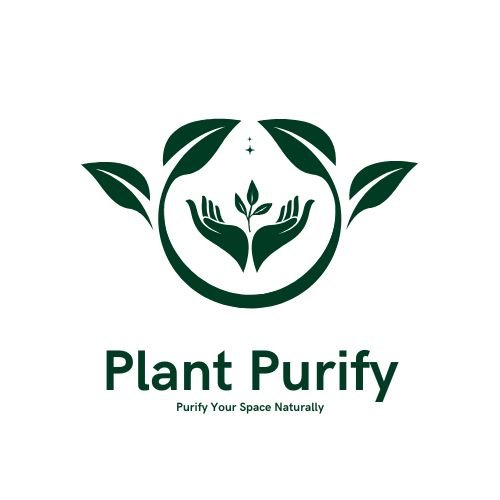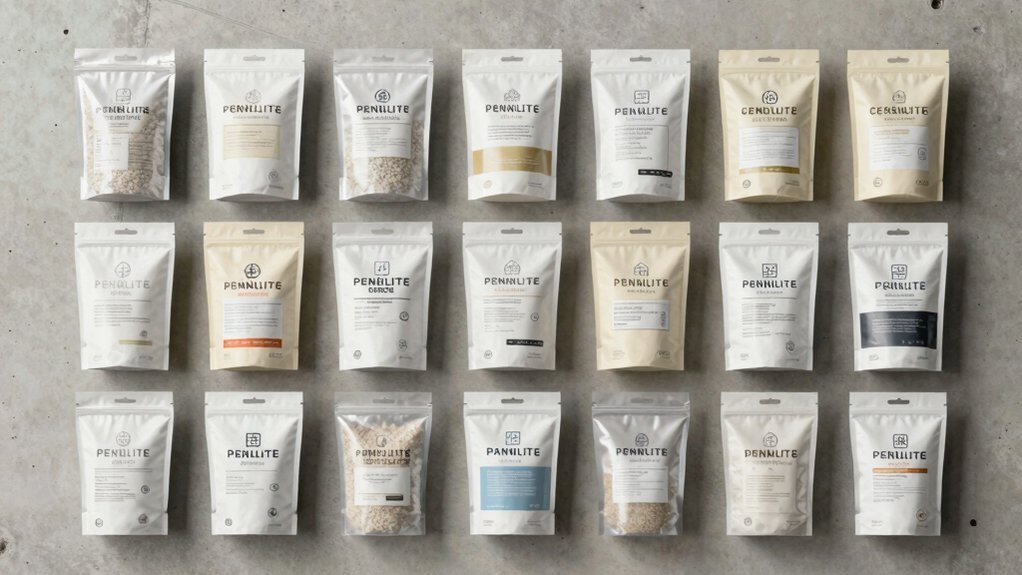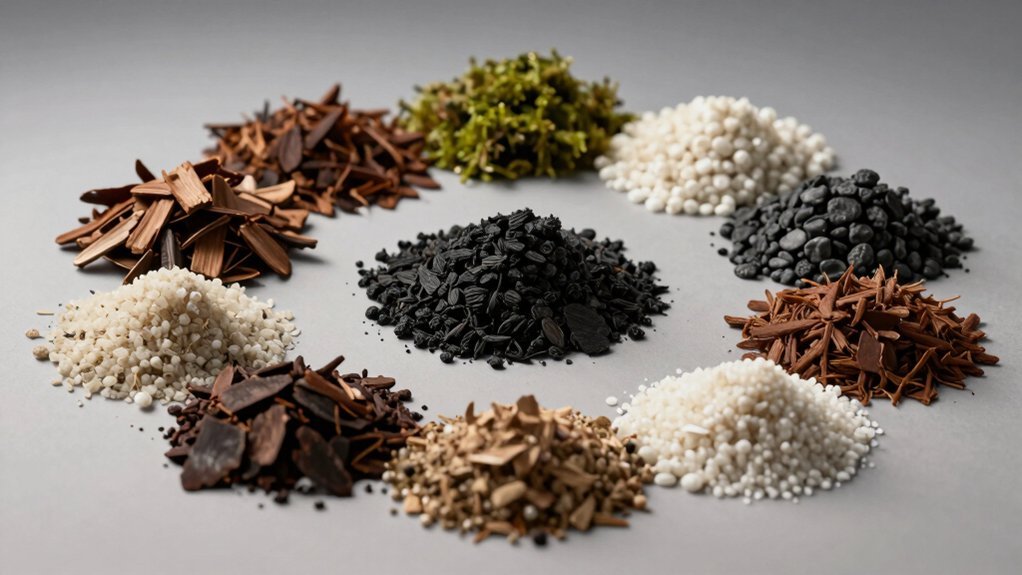For ideal plant air filtration, you'll want three powerful growing medium combinations. Your first choice is a mix of 40% peat moss, 30% perlite, and 30% compost for excellent moisture control and nutrient delivery. Another effective blend combines 40% coconut coir, 30% vermiculite, and 30% organic matter for superior aeration. Your third option mixes 35% peat moss, 35% compost, and 30% perlite with activated charcoal for enhanced toxin absorption. Discover how these ratios maximize your plants' air-purifying potential.
Essential Components of Air-Purifying Plant Soil

When setting up your indoor air-purifying garden, the right soil mix serves as the foundation for healthy plant growth and ideal air filtration.
You'll want to start with a well-draining potting mix that contains peat moss, coconut coir, and perlite to guarantee proper moisture retention while preventing soil compaction.
To boost soil fertility, incorporate organic matter like compost and worm castings, which provide essential nutrients for your air-purifying plants.
Enrich your indoor garden's vitality by adding nutrient-rich compost and worm castings, providing natural fuel for air-cleaning plants.
Add vermiculite to improve water retention, especially if you're growing moisture-loving varieties.
You'll know it's time to water when the soil is dry to the touch.
Maintain a pH between 6.0 and 7.0 for best nutrient uptake, and remember to refresh your growing medium every 1-2 years to keep your plants thriving and filtering effectively.
Organic Matter Ratios for Optimal Air Filtration
Since air-purifying plants require specific growing conditions, mixing the right ratios of organic matter is crucial for their success.
You'll want to start with 30-50% peat moss or coconut coir as your base organic matter to guarantee proper aeration and moisture retention for effective air filtration.
Add 20-30% perlite or vermiculite to improve drainage and air circulation, which helps your plants filter air pollutants more efficiently.
Mix in 10-20% compost to provide nutrients and beneficial microorganisms, and include 5-10% charcoal to absorb impurities and odors.
Remember to maintain a pH level between 6.0 and 7.0 for peak nutrient uptake.
This balanced combination creates an ideal growing environment that maximizes your plants' air-purifying capabilities while promoting healthy root development.
Ph Balancing and Mineral Enhancement for Plant Filters

Because maintaining proper pH levels directly impacts your plants' air-filtering abilities, regular monitoring and adjustment of your growing medium is essential.
You'll want to keep the pH between 6.0 and 7.0 using a soil meter for accurate testing. By incorporating organic materials like compost and peat moss, you'll enhance mineral content while naturally buffering pH levels.
Don't forget about proper aeration and drainage in your growing medium. Adding perlite or vermiculite prevents root rot and strengthens root systems, which are vital for effective air filtration.
For ideal mineral enhancement, you should use balanced fertilizers that provide both macro and micronutrients. This combination of pH balancing and mineral supplementation creates a perfect environment where your air-filtering plants can maximize their purification capabilities and maintain robust growth.
Frequently Asked Questions
What Plant Purifies the Air the Most?
You'll find the Peace Lily's your best air purifier among houseplants. It effectively removes multiple toxins like benzene, formaldehyde, and trichloroethylene through its high transpiration rate, making it nature's premier air filter.
What Plant Removes 78% of Airborne Mold?
You'll want the Boston Fern (Nephrolepis exaltata) to combat airborne mold. It's proven to remove up to 78% of mold spores while thriving in humid conditions. Keep it misted for best air-purifying results.
What Is the Best Growing Medium for Air Plants?
You'll get the best results growing air plants in well-draining Spanish moss or a specialized air plant substrate. You can also use a mix of bark, sphagnum moss, and perlite for extra support and nutrients.
What Is the Best Growing Medium for Indoor Plants?
You'll get the best results using a mix of potting soil, peat moss (or coconut coir), and perlite. This combination provides ideal drainage, aeration, and moisture retention for your indoor plants' healthy growth.
In Summary
You'll find your air-purifying plants thrive best when you create the right soil environment. Remember to maintain a 30-40% organic matter ratio, keep pH levels between 6.0-7.0, and add mineral supplements like perlite or vermiculite. By following these guidelines for your growing medium, you'll maximize your plants' air-filtering capabilities and guarantee they stay healthy. Test your soil mix every few months and adjust as needed.





Leave a Reply